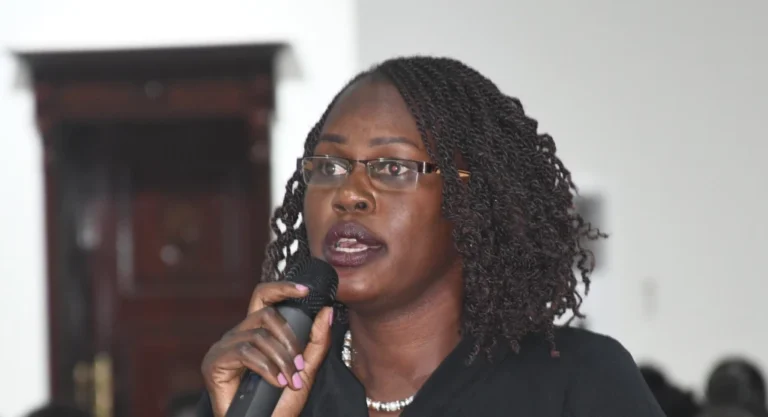A South Sudanese lawmaker on Thursday accused security forces of harassing and disrespecting members of parliament during ongoing house-to-house searches, saying soldiers have blamed legislators for the country’s worsening crisis.
Nyayang Johnson Lok Riek, a member of the Transitional National Legislative Assembly (TNLA), raised the concern during a parliamentary sitting, saying while lawmakers supported the security operations, the conduct of some personnel was “not acceptable.”
“Honorable speaker, the army that conducts these searches, especially in the homes of post holders like us members of parliament, has attitudes that are not acceptable,” she said.
Nyayang said the situation had worsened because official identification cards for lawmakers had expired, making it difficult for them to verify their status to security teams. When they attempt to identify themselves, she added, officers often dismiss them.
“They will tell you that you are the cause of all the problems in South Sudan. And they will walk into your house the way they want,” she told the assembly.
The legislator, who represents Jonglei State on the ruling Sudan People’s Liberation Movement (SPLM) women’s list, urged security institutions to respect parliamentarians as elected representatives. She also criticized what she described as a lack of formal procedure, saying officers often arrive heavily armed and without presenting official search warrants.
“They should at least present a paper approved by their division,” she said. “Because the same people may come to you at night and harm you in a different way.”
She expressed concern that some security personnel could later exploit their familiarity with homes to carry out robberies.
Nyayang urged the house leadership and its security committee to address the alleged harassment with the relevant authorities.
Second Deputy Speaker Permina Awerial Aluong rejected the alleged claims by soldiers that lawmakers were to blame for the nation’s crises, saying parliamentarians are also struggling with South Sudan’s worsening economic situation.
“According to Honourable Nyayang, they said we are the cause. I don’t know what cause we have,” Awerial said. “If we look at the financial or economic situation, it affects all of us. Even MPs are not getting money now.”
He added that parliament does not control national finances. “We don’t print money or collect taxes. The money is collected by other sections of government. We get money like everyone else,” he said.
The 550-member transitional assembly was formed under a 2018 peace deal that established South Sudan’s unity government. While parliament is mandated to provide oversight, analysts say the executive branch often bypasses it.




